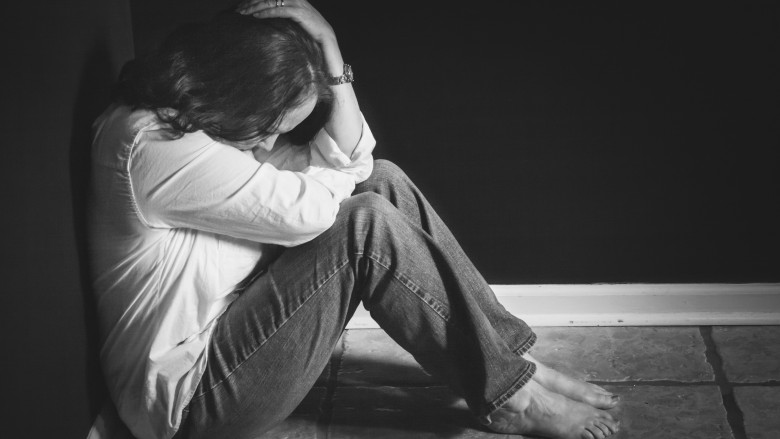Signs You May Have Bipolar Disorder
In my role as a licensed clinical social worker I covered the hospital emergency room for many years. I was required to do psychiatric evaluations on the patients who were admitted with apparent mental illness symptoms. One of the more debilitating mental illnesses I saw in my work at the hospital is called bipolar disorder. It is also sometimes referred to as manic-depressive disorder. People suffering from bipolar disorder have major shifts in their mood, energy, and level of activity. The moods can be very high or very low. It can impact relationships, work, school, and daily ability to function because of the uncertainty of how often, how severe, and how long these mood swings occur.
The National Institute for Mental Health, (NIMH) reports that "2.6% of the U.S. adult population" or 5.7 million people, have been diagnosed with this disorder. It is especially challenging for those who have bipolar disorder because of the nature of the ups and downs of the illness. They are unable to control these disruptive mood swings on their own.
People with a depressive episode find no joy in anything
People who are in the midst of a depressive state feel overwhelmed by their depression. They may have suicidal ideas or a preoccupation with thoughts about death and dying. When severe depression occurs with a bipolar patient, they often describe feelings of anhedonia. This means they are unable to experience any joy in their lives. In a depressive state there are feelings of extreme sadness and hopelessness. There can be frequent uncontrollable tearful episodes. This level of depression can be overwhelming and feel virtually impossible to shake.
A manic state causes you to engage in risky behaviors
When a manic episode occurs with a bipolar patient, there are feelings of elation. People will go on wild shopping, gambling, or drinking/drug use sprees. They may engage in risky sexual behaviors with people they don't know. Their impulse control is gone because they believe they can do anything. It offers a false sense of elation. You mistakenly believe you can engage in an activity for an unlimited amount of time without harming yourself in any way. A bipolar patient I knew jumped in a car with strangers and was badly beaten and robbed when she went off her medication. When someone is in a manic state, it is very difficult to calm them down or convince them their behavior is harmful to themselves. This false sense of importance is a part of the illness.
Energy levels continue to fluctuate
Another telltale sign of bipolar disorder is extreme changes in the energy level of the patient. In a manic state, people will literally be unable to slow themselves down. They often act like they have had way too much caffeine and are bouncing off the walls. They seem jumpy and can't sit still. During these episodes, they believe they have endless energy and want to keep going day and night sometimes for several days in a row. In manic states, they want to get a lot of things done right away because there is a false sense of ambition, ability, and excitement.
The opposite will occur in a depressive episode. Getting out of bed can feel like an impossible task to accomplish. No matter what you do during these episodes, when you are feeling this depressed you just feel tired all of the time. There is no energy to try to do the simplest of tasks like getting dressed or bathing. Accomplishing anything of note during these episodes is highly unlikely.
The ability to focus is contingent on your mood
Bipolar disorder is a disorder of the brain. It directly affects your ability to focus and think. People that are in a depressive state may have difficulty remember things or focusing on something for any significant period of time. They may be non-communicative as well.
When in a manic state people appear like their mind is going in a lot of directions at one time. It feels like their thoughts are racing. Their thinking is hard to follow and it is hard for them to focus on one idea or thought at a time. At the time these episodes occur, people often become tangential — meaning one thought will have no apparent connection to the previous thought. It can be hard to even carry on a conversation in a manic state. You can almost see the ideas and thoughts flying around in their head.
Normal sleep cycles do not exist with people with bipolar symptoms
As you might imagine, when a person is in a severely depressed episode they may want to sleep all of the time. When severe depressive states occur, it robs you of the energy or the inclination to do anything, and you will want to stay in bed. Sleep feels like the only alternative.
People in a manic state can go days without any sleep. They often lose their awareness of time. With a false sense of energy, they don't feel they need any sleep. They don't want anything to slow them down. There is a strong desire to do as many things as they can, often at the same time. The ability to self-regulate is non-existent.
Mood swings cause changes in appetite
Loss of appetite is a symptom that goes along with severe depression. Disinterest in food is not unusual for bipolar patients trapped in a severely depressed episode. There is no joy in eating even their favorite foods. Several days can go by before they eat anything. They can be totally unaware that they have not eaten, ignoring signals from their body.
In contrast, people in the midst of a manic phase cannot stop themselves from eating. High consumption of food and drinks goes hand in hand with mania. The ability to control impulse-eating is nowhere to be found at this time. The ability to self-regulate is simply not there during these episodes.
Symptoms of mania and depression can happen simultaneously
There is a mistaken impression that people who suffer from bipolar disorder must either be in a manic or depressive episode at a given moment. That is not true. One of the most challenging scenarios of bipolar disorder is when there is a mixture of these symptoms simultaneously. This is particularly confusing for bipolar patients and the people around them. Trying to manage this type of symptom presentation is especially challenging.
The challenges of medication management.
One common mistake that people with bipolar disorder make is that when they are feeling good, they take themselves off their medication. They erroneously believe that the medication has worked or that the mood swings are not a problem anymore and the medicine is no longer necessary. This can cause serious mental health consequences including symptom relapse and a return of the mood instability. It is a good idea to have a doctor or another trusted person help monitor medications to ensure they are being taken in the proper dose and time frames.
Proper treatment can offer great results
Bipolar disorder can create chaos and stress in terms of relationships when a loved one is in the midst of intense and frequent mood changes. Those close to someone with bipolar disorder can benefit from both support and education. Loved ones need to have a good understanding of this illness, its implications, and risks. This can be a mental illness that is difficult to conquer without the proper medication and treatment. A person can be functional and productive at times during manic episodes, but this is often hard to sustain.
The combination of medication management and psychotherapy, also referred to as talk therapy, is the most effective means of treating bipolar disorder. The goal of the medication is to help stabilize mood swings. Psychotherapy teaches you how to identify your potential triggers and assess ways to alter negative thinking. It also offers new coping skills to help manage potential mood swings. Patients that follow this treatment regime are good candidates for a more hopeful future and a return to a more stable life.









